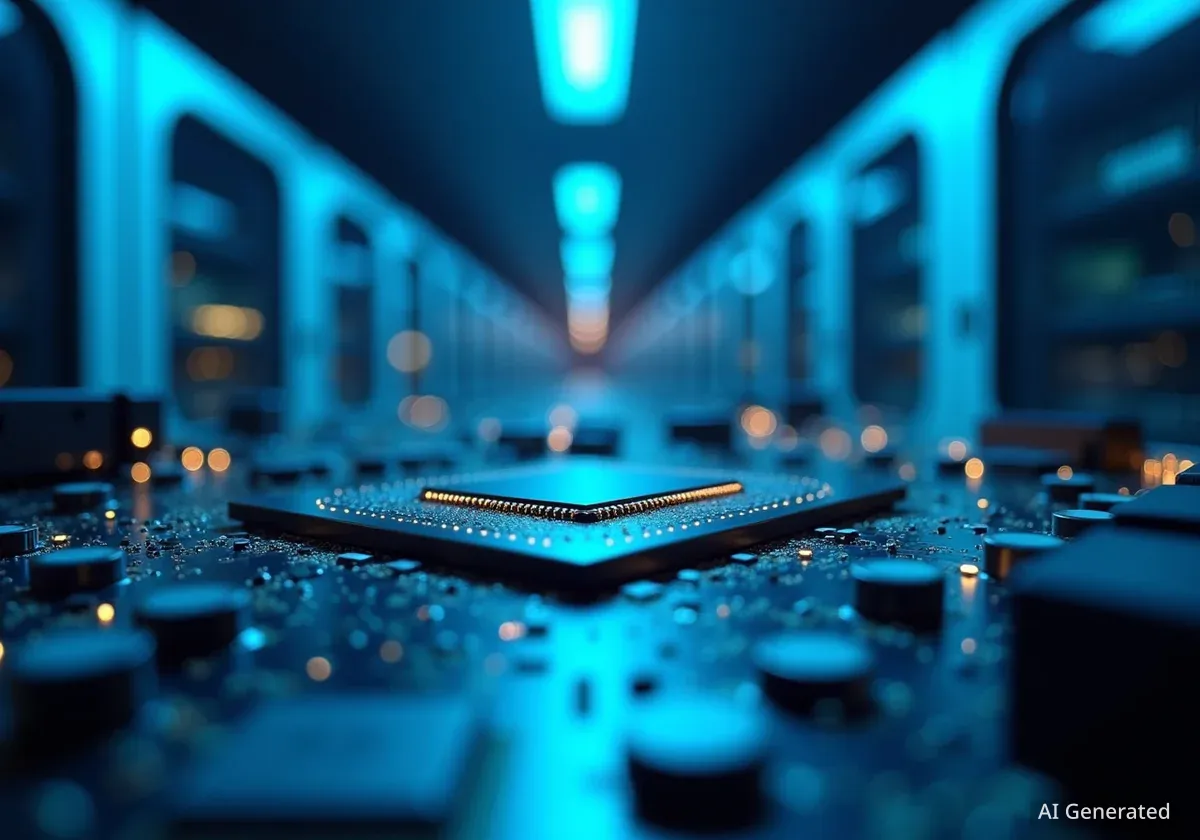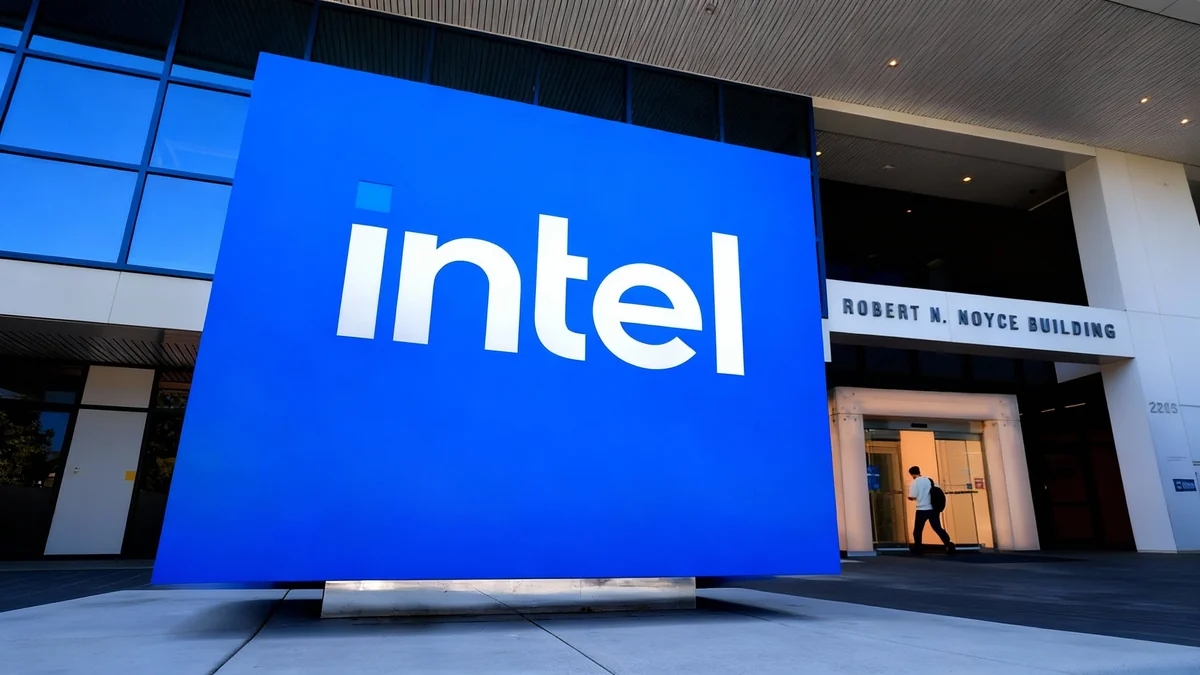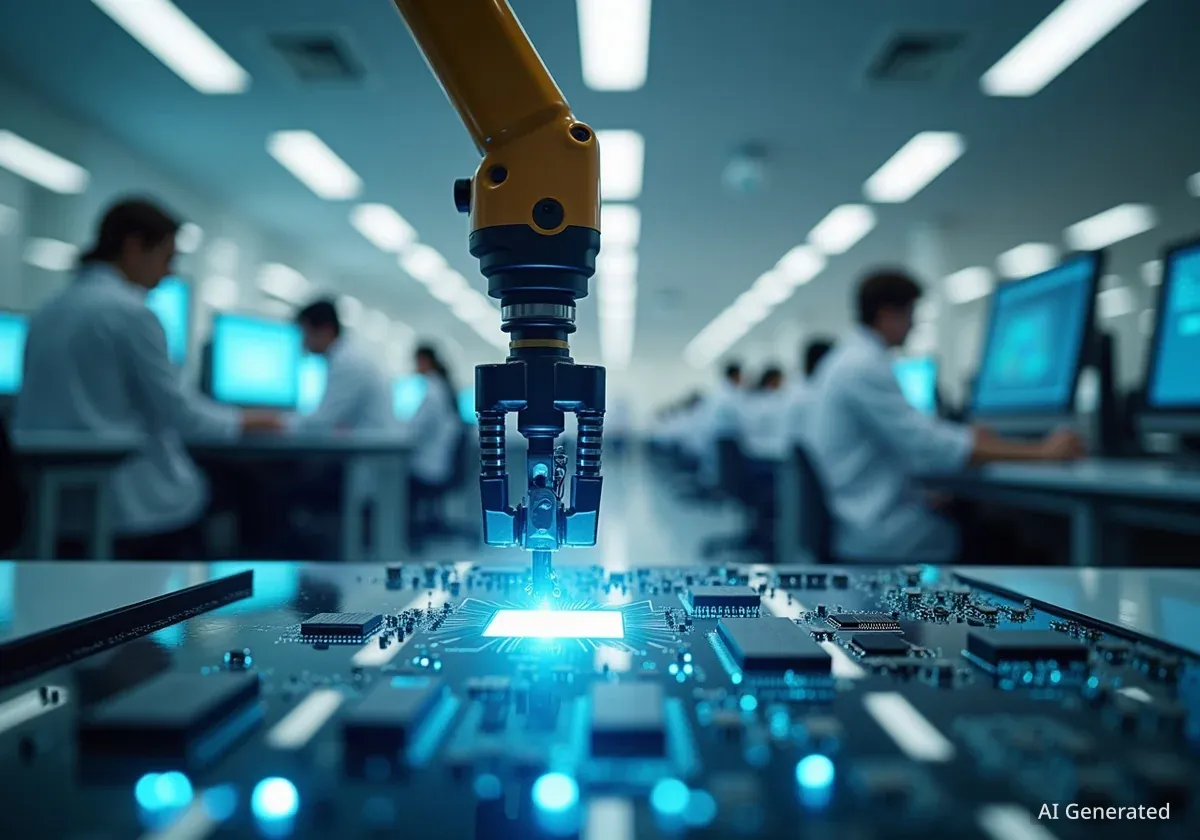Advanced Micro Devices (AMD) stock experienced a significant increase this week, climbing 11% on Wednesday alone. This surge follows an announcement earlier in the week that OpenAI plans to purchase billions of dollars worth of AI equipment from the chipmaker. The partnership has boosted investor confidence in AMD's ability to compete in the artificial intelligence chip market.
Key Takeaways
- AMD stock rose 11% on Wednesday, contributing to a 43% weekly gain.
- OpenAI's agreement includes potential ownership of 10% of AMD.
- The deal strengthens AMD's position as a competitor to Nvidia in AI chips.
- AMD CEO Lisa Su described the partnership as a "win-win."
- Nvidia CEO Jensen Huang expressed surprise at the announcement.
AMD's Significant Market Performance
AMD shares have seen a substantial rise, marking their best weekly performance since April 2016. On Monday, the stock climbed 24%, followed by a 4% increase on Tuesday, and an additional 11% on Wednesday. This consistent growth has pushed AMD's market capitalization to $380 billion.
The company's stock performance reflects strong investor reaction to its new collaboration. This partnership is seen as a key step for AMD in the rapidly expanding artificial intelligence sector. It positions the company as a strong contender against established players.
Stock Performance Highlights
- Monday: Stock up 24%
- Tuesday: Stock up 4%
- Wednesday: Stock up 11%
- Weekly Total: Stock up 43%
- Current Market Cap: $380 billion
OpenAI's Strategic Investment
OpenAI, known for its ChatGPT technology, formalized an agreement to potentially acquire a 10% stake in AMD. This ownership would be determined by AMD's stock price and specific partnership milestones. The agreement signals OpenAI's commitment to diversifying its hardware suppliers.
Historically, OpenAI has maintained close ties with Nvidia, another leading chipmaker in the AI space. This new deal with AMD marks a notable shift in strategy for the AI research company. It suggests a growing demand for diverse and high-performance AI hardware solutions.
AMD CEO Lisa Su commented on the deal on Monday, calling it a "win-win." She also stated that AMD's AI chips are capable of supporting "at-scale deployments." This refers to very large data centers, such as those operated by OpenAI and major cloud service providers.
Competition in the AI Chip Market
The agreement between AMD and OpenAI has intensified the competition in the artificial intelligence chip market. Investors now have increased confidence that AMD can effectively challenge Nvidia's dominant position. Nvidia has largely led the market for AI chips, making this partnership a significant development.
The demand for powerful AI chips continues to grow as AI applications become more complex and widespread. Companies like OpenAI require massive computing power for their large language models and other AI projects. This creates opportunities for multiple chip manufacturers.
AI Chip Market Dynamics
The market for AI chips is highly competitive, with a few key players. Nvidia has been a frontrunner due to its specialized GPUs that excel in parallel processing, crucial for AI workloads. However, other companies like AMD are investing heavily in developing their own AI-optimized hardware to capture a share of this expanding market.
Nvidia's Reaction to the Partnership
Nvidia CEO Jensen Huang shared his thoughts on the AMD-OpenAI deal during an interview on CNBC's Squawk Box on Wednesday. Huang described the partnership as "surprising." His comments highlighted the unexpected nature of the agreement given OpenAI's previous relationship with Nvidia.
"It's imaginative, it's unique and surprising, considering they were so excited about their next-generation product," Huang said. He added, "I'm surprised that they would give away 10% of the company before they even built it. And so anyhow, it's clever, I guess."
Huang's remarks suggest a cautious but intrigued perspective from Nvidia. The competitive landscape for AI hardware is evolving rapidly. Companies are exploring various strategies, including equity partnerships, to secure access to essential AI infrastructure.
Future Outlook for AMD
This strategic alliance with OpenAI is expected to significantly impact AMD's future in the AI sector. The deal provides AMD with a major customer and validates its AI chip technology for large-scale deployments. This could lead to further partnerships and increased market share.
The company's focus on developing high-performance AI accelerators is crucial. As AI technology advances, the need for efficient and powerful hardware will only increase. AMD is positioning itself to meet this demand, aiming to become a leading supplier in the AI ecosystem.
- The partnership diversifies OpenAI's hardware supply chain.
- It provides AMD with a significant customer for its AI chips.
- The deal could pave the way for more large-scale deployments for AMD.
- Competition in the AI chip market is expected to intensify further.
The technology industry will be watching closely to see how this partnership unfolds. It could redefine the competitive dynamics among chipmakers and AI developers.





